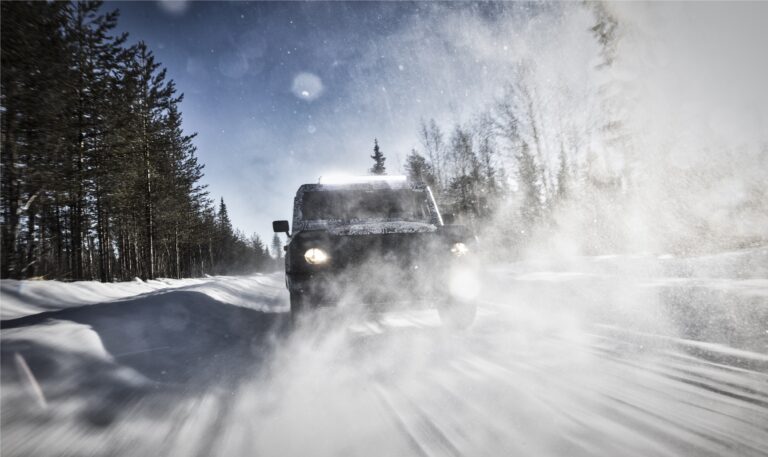We are told repeatedly that speed kills, but speed does not kill. Hard acceleration might, and so will losing that speed instantaneously, but speed itself will not.
Those who disagree, please account for the existence of supersonic aircraft and the 430 km/h Bugatti Veyron Super Sport.
Couple that wrongful notion with the fact that Kenya has one of the highest accident-related deaths per capita per annum, and it is plain to see that we are unwittingly becoming a nation of slowpokes.
Speed does not kill, incompetence does. But who, in their right minds, would ban half the drivers from our roads?
Yes, Kenyans are moving slower and slower on the roads, and for several reasons. To start with, a good number of our roads are in a sad state of disrepair, and this, I think, plays a bigger role in causing accidents than actual speeding.
Then we also have heavy construction going on along some major thoroughfares, creating diversions that are hard to fathom by day and become Venus fly-traps for unwary drivers by night.
Add to that the biggest of Nairobi’s problems, the perennial gridlock, and you will see our collective velocity-time graph plummeting.
Then we have to consider the kinds of cars that we drive: aging, obsolete ex-Japan or ex-Singapore hardware that can (and will) kill you if pushed to the limit.
But must we drive slowly? We waste a lot of precious man-hours trundling up and down the country’s road network at a lethargic pace, and that is not good for the economy.
Sure, it is not entirely up to us drivers that the average Kenyan driving speed is low, sometimes factors play against our trying to get to point B a little sooner.
We need and we have to revise our legal speed limits; including putting minimum speed limits on some major highways.
The world’s most industrialised nations have super-highways on which one receives a citation if one drives slower than required. Think of that citation as a booking for obstruction.
Try Germany, for starters. The famous Bundesautobahn (Federal Freeway, more commonly called the Autobahn) has some lanes dedicated for driving at speeds between 240 km/h and 320 km/h… or faster if you have the right car… and this has become a high-speed test track for Mercedes, BMW, Audi, Porsche and Volkswagen whenever they want to see how fast their cars can really go.
The Autobahn stretches into Belgium which has no limits whatsoever (in Germany there are sections where the ‘Bahn is restricted). Six lanes of open road on which you can zoom as hard as you want to go. Italy has the Autostrada, with similar attributes.
In most of Europe, the typical minimum speed on a highway is about 130 km/h. Oddly enough, the accident rates on the German Autobahn are lower than those of the rest of Europe, in spite of the fact that some drivers try to clock 300km/h on it while dodging heavy trucks.
In South Africa, the road from Johannesburg to Pretoria is an engineering marvel, so wide and so smooth you could land fighter aircraft on it.
Think of the time we would save if we got our collective acts right.
The speed limit for a private car currently stands at 110 km/h, a limit set in the ‘60s. We have cars (and drivers) that do twice that on our highways today.
The speed limit for buses and other PSVs was set by one Hon Michuki at 80 km/h, but many of us have been in buses that periodically touch 140 km/h.
Or, worse yet, the infamous Toyota Shark that keeps accelerating beyond 150 km/h. The Northern Corridor (Mombasa–Nairobi–Eldoret–Malaba) has been more or less fixed; all it needs are a few more lanes on each side and this idea could work.
From experience, let us look at some figures. Private cars generally do 140–150 km/h between Nairobi and Nakuru. Smooth road, so we could set a speed limit of 130 km/h for now until we add some more lanes, after which the road can be derestricted.
Fourteen-seater matatus can have their limit set at 110 instead of 80, though they shouldn’t be derestricted, lanes or no lanes.
Buses do about 120–130 km/h, so their speed should be capped at 110. Can we do this? Yes we can. The time savings will be enormous.
There are those that will shout back, “But what about careless or drunk drivers?” Aah, laws should be enacted to deter such.
Britain and several other countries have a system where one earns points on one’s driving license for every traffic infraction, and should those points reach 10, one’s license is confiscated and a ban is imposed on the offender, for periods that could stretch up to five years or beyond.
Heavy traffic fines are also imposed (up to £200 in some cases, about Sh24,000) on offenders, as are vehicle impounds (sometimes vehicles also face bans).
The use of traffic cameras ensures very few, if any, transgressors will get away.
And just to be sure that carelessness is not acquired over time, renewal of driving licenses sometimes comes with a repeat driving test (theory), particularly for those with points on their documents. This should help keep drunks and incompetents off the roads.




